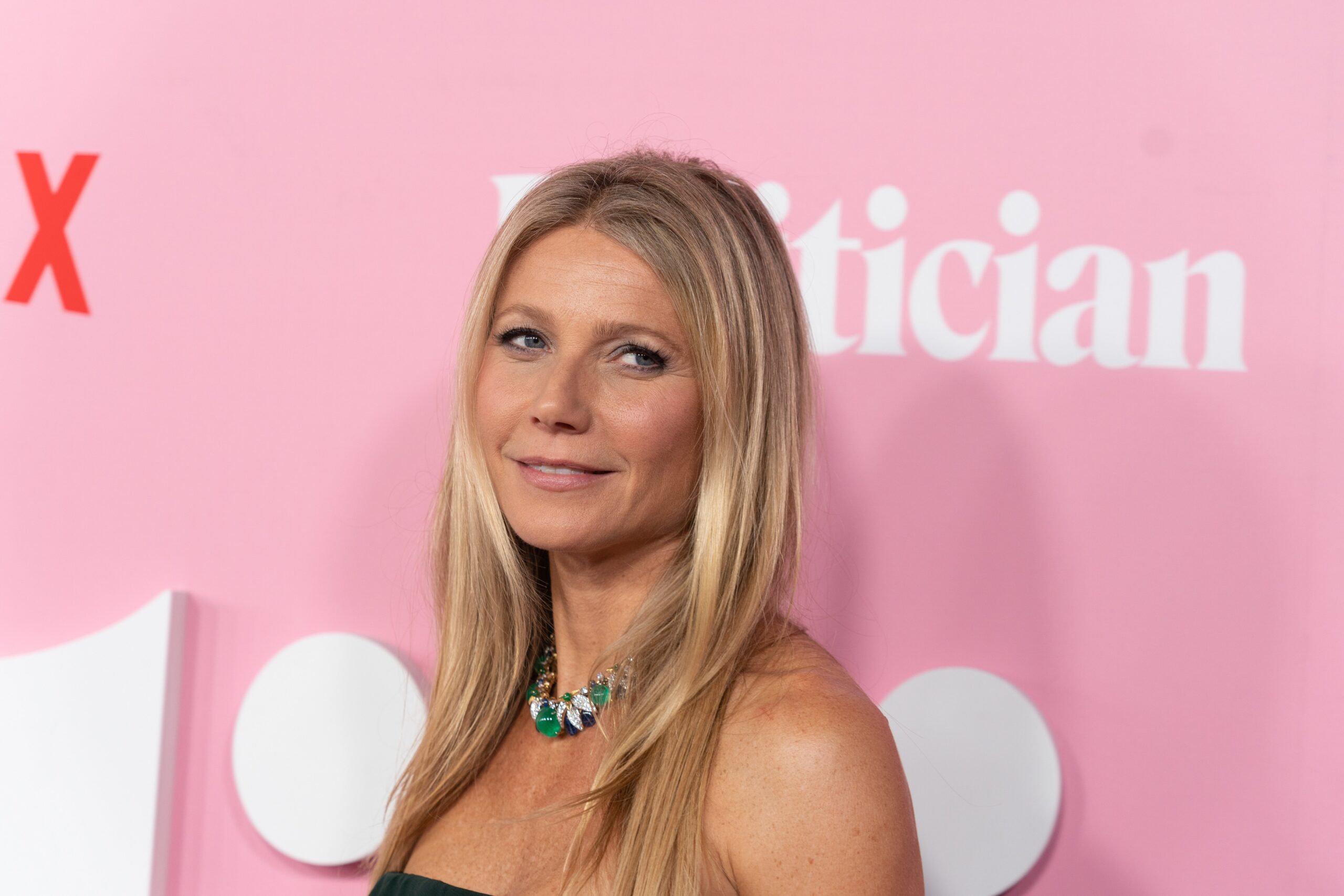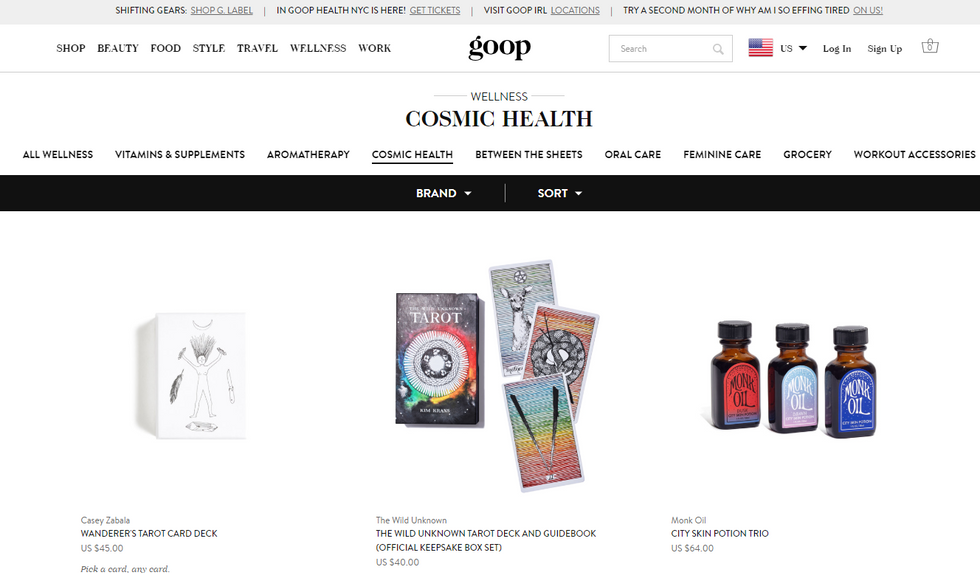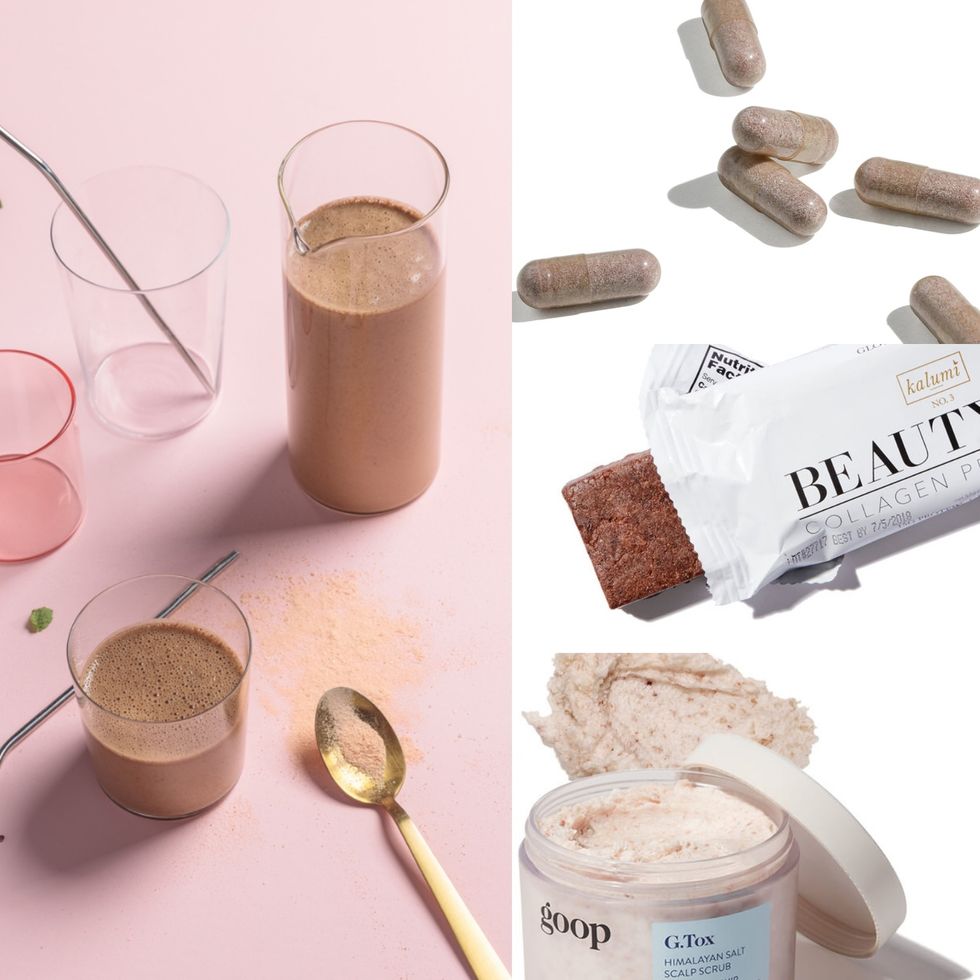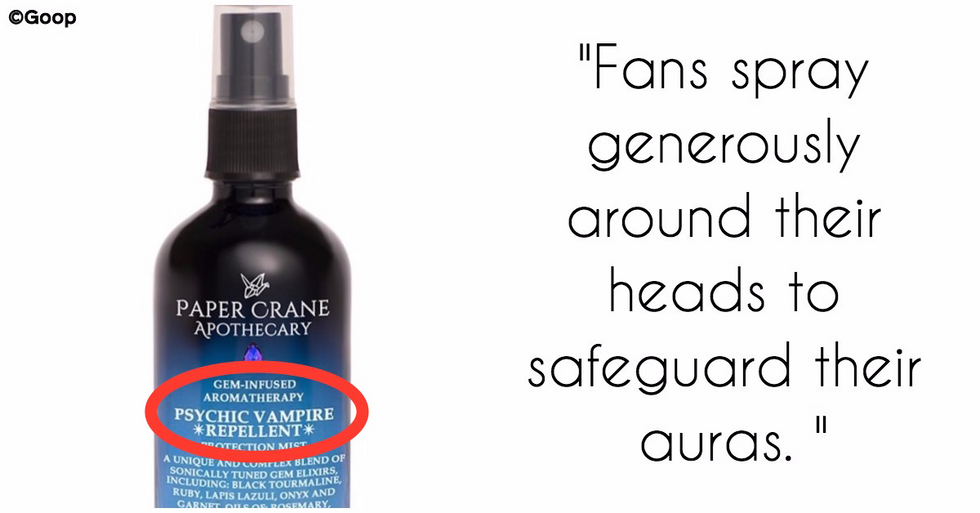Top Stories
Gwyneth Paltrow Sells Soul to Late Capitalism in Netflix’s “The Goop Lab” Trailer
05 Feb, 19

Gwyneth Paltrow, NYC
Photo by Ron Adar (Shutterstock)
Imagine an entire Netflix show following wealthy Americans struggling to find new ways to waste their capital—only worse, because it tries to convince the public that coffee enemas are good for you and you can nourish your chakras by eating the colors of the rainbow.
the goop lab with Gwyneth Paltrow | Trailer | Netflixyoutu.be
Netflix released the first trailer for Goop’s snake oil docuseries, The Goop Lab. Brought to you by Gwyneth Paltrow’s wellness and lifestyle company, whose concepts of health and wellness only suit an alien trying to pass as human, the six-part series will feature 30-minute episodes hosted by one of the Goop website editors, including Paltrow. From the company’s pre-existing podcast, magazine, and Paltrow’s line of Goop cookbooks, the lifestyle brand has been “expanding its original content” with bogus pseudoscience and wellness cash-grabs since 2008.
 “Cosmic Health”Goop.Com
“Cosmic Health”Goop.Com
Goop’s chief content officer and possible extraterrestrial, Elise Loehnen, will also co-host the docuseries. She and Paltrow currently co-host Goop’s podcast where they promote the brand’s alternative medicine by interviewing “leading thinkers, culture changers, and industry disruptors” about the most effective “detoxes” and “cleanses” for the filthy human body. Loehnen is clearly a fan of her Oscar-winning partner (and probably shapes and colors in general), saying, “Gwyneth is a highly visual, tactile person. The quality of everything that we produce is very important to her. She’s always looking for white space, whether it’s developing physical products or thinking of content.” Yet, every product at Goop seems to be pale gray, so something’s tainting Paltrow’s pure, white spaciness.
 Goop.com
Goop.com
Sure, science has long been screaming into the Internet void that there are no such things as body “toxins,” and claims to “detox” or “cleanse” your body with extreme diets are fearmongering marketing schemes, but Goop’s editors clearly memorized their Marketing 101 textbook. Loehnen continued, “With this show, I think [Gwyneth] is only really interested in opportunities where we can uniquely be ourselves and do things potentially disruptive.”
For instance, one of Goop’s infamous luxury items is the yoni egg (yoni being the Sanskrit word for vagina). They’ve marketed that holding one of these bad boys inside the vagina for 20-30 minutes will alleviate irregular menstrual cycles, hormonal imbalance, and uterine prolapse. In 2018, the company was required to pay $145,000 and refund customers due to promoting these unscientific claims. Still, the website insisted that the yoni egg helps “cultivate sexual energy, clear chi pathways in the body, intensify femininity, and invigorate our life force”—for $66.
The Goop Lab will debut on Netflix on January 24, with Paltrow and her team of content strategists and wannabe influencers interviewing “experts” in alternative medicine such as exorcisms, psychic mediums, and energy therapy. They’ll explore issues of physical and spiritual wellness that Goop’s richest customers care about, according to their marketing team. Loehnen affirmed that the series will focus on promoting the Goop brand and plans on having no artistic integrity, stating, “We were speaking to the platform question, and where our people are. They’re watching Netflix. Some of the more strategic, bigger stories we want to tell require a TV budget. Obviously, there’s no better partner in that.” The $250 million company might draw “bigger stories” from its website’s advice, such as curing winter blues by massaging $85 ayurvedic oils between your toes, curing autoimmune diseases by swallowing parasites, or protecting your aura “from psychic attack and emotional harm” with $27 Psychic Vampire Repellent (which some say smells like “socks dipped in grain alcohol”).
 Goop.com
Goop.com
On the bright side, health experts aren’t giving up in the fight against celebrity pseudoscience. Timothy Caulfield, Canada Research Chair in Health Law and Policy at the University of Alberta, recently wrote a detailed overview of why the most popular (and lucrative) celebrity-backed health crazes have lodged themselves into our public consciousness. “This decade of celebrity health hogwash should also be considered in the broader context,” he warns. “This is the era of misinformation, a time when trust in public institutions is declining and people feel uncertain about what to believe about, well, everything. Celebrity wellness hype contributes to this “culture of untruth” by both inviting a further erosion of critical thinking and promoting what is popular and aspirational rather than what is true.” Between Instagram fitness gurus and absurd celebrity “beauty secrets,” we’re all surrounded with contradictory pieces of wellness advice. Goop describes their prescribed practices as “out there” or “too scary” for people because they go against basic common sense. As Caulfield points out, studies find that the public is increasingly confused about what constitutes a healthy lifestyle — “this, despite the fact that for most people the essential ingredients are straightforward and well established (don’t smoke, exercise, eat real food, sleep, maintain a healthy weight, and drink alcohol in moderation or not at all).”
Above all, the most important piece of wellness advice for 2020 is not to believe in celebrity endorsements (especially when it’s Gwyneth Paltrow telling you to steam your crotch). Why? In a moment of utter honesty, Paltrow seems to speak for all of late capitalism when she says in The Goop Lab trailer: “We’re here one time, one life, how can we really milk the sh*t out of this?”
- Gwyneth Paltrow Scores 100% On Narcissist Diagnostic Test … ›
- Gwyneth Paltrow Wants To Get Her Goop All Up In Your Vagina … ›
- Steve Carrell’s “Space Force” Is Actually a Tragedy – Popdust ›
- Why the Wellness Industry Wants Your Trauma: Gwyneth Paltrow Brings “The Goop Lab” to Netflix – Popdust ›
- Gwyneth Paltrow reportedly in talks with Netflix for new Goop show … ›
- Gwyneth Paltrow and Netflix Sign Deal on Goop Docuseries | Fortune ›
- Gwyneth Paltrow’s Goop Is Getting a Netflix Show | E! News ›
- Gwyneth Paltrow’s Goop to become a Netflix TV series | EW.com ›
- Gwyneth Paltrow’s Goop Gets Netflix Show, Delta Airlines Deal ›
- Gwyneth Paltrow’s Goop Is Getting a Netflix Show ›
- Gwyneth Paltrow’s Goop is coming to Netflix | TechCrunch ›
- Netflix gave Gwyneth Paltrow money to make a ‘Goop’ series ›
- Gwyneth Paltrow and Netflix Seal Deal as Goop Expands Original … ›
- Gwyneth Paltrow’s Goop to become Netflix TV show | Film | The … ›













